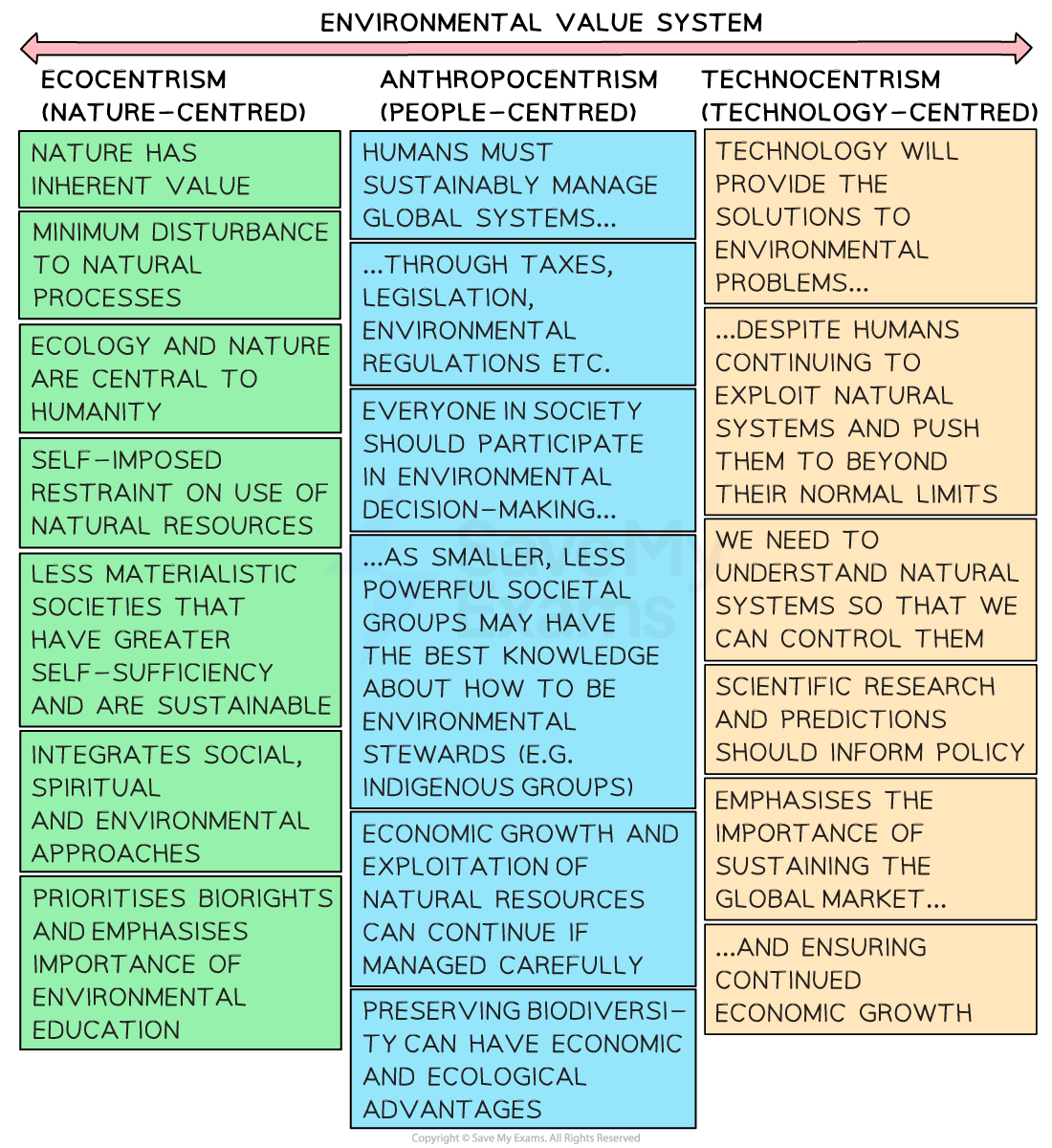Syllabus Edition
First teaching 2024
First exams 2026
Definition & Purpose of Environmental Economics (DP IB Environmental Systems & Societies (ESS)) : Revision Note
Basics of Economics
Economics is the study of how people make choices about what to produce, how to distribute goods and services and how to use them
It examines how individuals and societies allocate scarce natural resources to satisfy their wants and needs
This is sometimes referred to as the economic problem
Economics explores both individual decision-making and collective behaviour in markets and economies

Supply and demand
Supply refers to the quantity of a good or service that producers are willing and able to offer for sale at different prices
Demand refers to the quantity of a good or service that consumers are willing and able to buy at different prices.
The interaction of supply and demand determines the equilibrium price and quantity in a market
For example, if the price of smartphones decreases, the demand for smartphones may increase because more people can afford to buy them
Market interaction
Markets are any location or platform (both physical and virtual, i.e. online) where buyers and sellers come together to exchange goods and services
Market interaction involves the exchange of goods and services based on the forces of supply and demand
For example, in a farmer's market, farmers supply fresh produce, and consumers demand fruits and vegetables
The prices are determined by the balance between what farmers are willing to sell and what consumers are willing to pay
Examples of Markets
Market Type | Description |
|---|---|
Housing Market | Prices determined by supply of houses for sale and demand from buyers |
Labour Market | Wages determined by supply of workers and demand from employers |
Stock Market | Stock prices influenced by supply of shares and demand from investors |
Agricultural Market | Prices determined by supply of agricultural products and demand from consumers |
Foreign Exchange Market | Prices of currencies determined by supply of and demand for different currencies |
Introduction to Environmental Economics
Environmental economics is a branch of economics that applies economic principles to environmental issues and the management of natural resources
It aims to understand how human activities impact the environment and how economic policies can be designed to achieve sustainable outcomes
For example, consider the market for renewable energy:
As the demand for clean energy sources increases due to concerns about climate change, environmental economics helps to analyse which incentives and policies are needed to promote the development and adoption of renewable technologies
Technocentrics vs. ecocentrics
Technocentrics believe that advancements in science and technology can solve environmental problems within the existing economic framework
They emphasise the role of innovation in developing modern technologies to address environmental challenges (and therefore reduce their economic impacts)
For example, technocentrics may argue that investments in carbon capture and storage technologies can help mitigate greenhouse gas emissions from industries like power generation and manufacturing
On the other hand, ecocentrics support a more holistic approach that prioritises fundamental changes in human behaviour towards sustainable living
They do not believe that environmental problems can be solved within the existing economic framework
They emphasise the importance of living in harmony with nature rather than relying solely on technological solutions
This may require challenging or transforming existing economic systems and practices
An example of this perspective is the promotion of sustainable lifestyles, such as minimalism and zero-waste living, which aim to reduce consumption and minimise environmental impact

Perspectives on solutions
The existing economic system often relies on the belief that scientific and technological advancements will be sufficient to address environmental challenges
This perspective is demonstrated by policies and initiatives that focus on developing modern technologies to mitigate environmental impacts
For example, government subsidies for electric vehicles and renewable energy projects aim to incentivise technological innovation and reduce dependence on fossil fuels
In contrast, supporters of environmental economics argue for a shift towards sustainable and responsible human behaviour as a solution to environmental issues
This approach is demonstrated by policies and initiatives that prioritise environmental protection and social well-being over economic growth
An example of this approach is the use of environmental regulations that restrict harmful activities and promote sustainable resource management, e.g. regulations on emissions standards for vehicles, which aim to reduce air pollution and improve public health

You've read 0 of your 5 free revision notes this week
Sign up now. It’s free!
Did this page help you?

